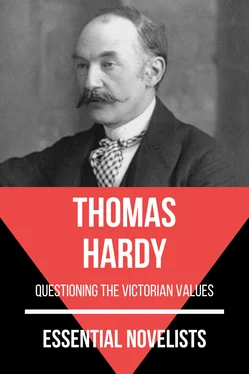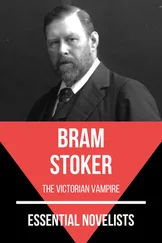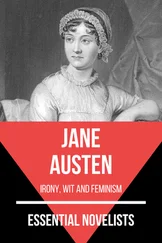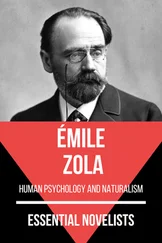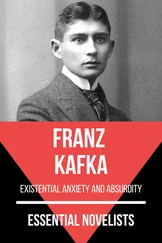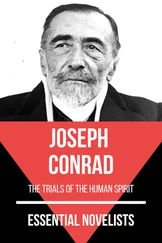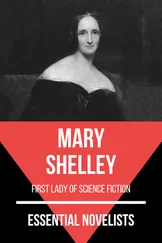"I think I know what!" Jude hurriedly said. "About her escaping from the training school, and her coming to me?"
"Yes."
"Well"—Jude for a moment felt an unprincipled and fiendish wish to annihilate his rival at all cost. By the exercise of that treachery which love for the same woman renders possible to men the most honourable in every other relation of life, he could send off Phillotson in agony and defeat by saying that the scandal was true, and that Sue had irretrievably committed herself with him. But his action did not respond for a moment to his animal instinct; and what he said was, "I am glad of your kindness in coming to talk plainly to me about it. You know what they say?—that I ought to marry her."
"What!"
"And I wish with all my soul I could!"
Phillotson trembled, and his naturally pale face acquired a corpselike sharpness in its lines. "I had no idea that it was of this nature! God forbid!"
"No, no!" said Jude aghast. "I thought you understood? I mean that were I in a position to marry her, or someone, and settle down, instead of living in lodgings here and there, I should be glad!"
What he had really meant was simply that he loved her.
"But—since this painful matter has been opened up—what really happened?" asked Phillotson, with the firmness of a man who felt that a sharp smart now was better than a long agony of suspense hereafter. "Cases arise, and this is one, when even ungenerous questions must be put to make false assumptions impossible, and to kill scandal."
Jude explained readily; giving the whole series of adventures, including the night at the shepherd's, her wet arrival at his lodging, her indisposition from her immersion, their vigil of discussion, and his seeing her off next morning.
"Well now," said Phillotson at the conclusion, "I take it as your final word, and I know I can believe you, that the suspicion which led to her rustication is an absolutely baseless one?"
"It is," said Jude solemnly. "Absolutely. So help me God!"
The schoolmaster rose. Each of the twain felt that the interview could not comfortably merge in a friendly discussion of their recent experiences, after the manner of friends; and when Jude had taken him round, and shown him some features of the renovation which the old cathedral was undergoing, Phillotson bade the young man good-day and went away.
This visit took place about eleven o'clock in the morning; but no Sue appeared. When Jude went to his dinner at one he saw his beloved ahead of him in the street leading up from the North Gate, walking as if no way looking for him. Speedily overtaking her he remarked that he had asked her to come to him at the cathedral, and she had promised.
"I have been to get my things from the college," she said—an observation which he was expected to take as an answer, though it was not one. Finding her to be in this evasive mood he felt inclined to give her the information so long withheld.
"You have not seen Mr. Phillotson to-day?" he ventured to inquire.
"I have not. But I am not going to be cross-examined about him; and if you ask anything more I won't answer!"
"It is very odd that—" He stopped, regarding her.
"What?"
"That you are often not so nice in your real presence as you are in your letters!"
"Does it really seem so to you?" said she, smiling with quick curiosity. "Well, that's strange; but I feel just the same about you, Jude. When you are gone away I seem such a coldhearted—"
As she knew his sentiment towards her Jude saw that they were getting upon dangerous ground. It was now, he thought, that he must speak as an honest man.
But he did not speak, and she continued: "It was that which made me write and say—I didn't mind your loving me—if you wanted to, much!"
The exultation he might have felt at what that implied, or seemed to imply, was nullified by his intention, and he rested rigid till he began: "I have never told you—"
"Yes you have," murmured she.
"I mean, I have never told you my history—all of it."
"But I guess it. I know nearly."
Jude looked up. Could she possibly know of that morning performance of his with Arabella; which in a few months had ceased to be a marriage more completely than by death? He saw that she did not.
"I can't quite tell you here in the street," he went on with a gloomy tongue. "And you had better not come to my lodgings. Let us go in here."
The building by which they stood was the market-house; it was the only place available; and they entered, the market being over, and the stalls and areas empty. He would have preferred a more congenial spot, but, as usually happens, in place of a romantic field or solemn aisle for his tale, it was told while they walked up and down over a floor littered with rotten cabbage-leaves, and amid all the usual squalors of decayed vegetable matter and unsaleable refuse. He began and finished his brief narrative, which merely led up to the information that he had married a wife some years earlier, and that his wife was living still. Almost before her countenance had time to change she hurried out the words,
"Why didn't you tell me before!"
"I couldn't. It seemed so cruel to tell it."
"To yourself, Jude. So it was better to be cruel to me!"
"No, dear darling!" cried Jude passionately. He tried to take her hand, but she withdrew it. Their old relations of confidence seemed suddenly to have ended, and the antagonisms of sex to sex were left without any counter-poising predilections. She was his comrade, friend, unconscious sweetheart no longer; and her eyes regarded him in estranged silence.
"I was ashamed of the episode in my life which brought about the marriage," he continued. "I can't explain it precisely now. I could have done it if you had taken it differently!"
"But how can I?" she burst out. "Here I have been saying, or writing, that—that you might love me, or something of the sort!—just out of charity—and all the time—oh, it is perfectly damnable how things are!" she said, stamping her foot in a nervous quiver.
"You take me wrong, Sue! I never thought you cared for me at all, till quite lately; so I felt it did not matter! Do you care for me, Sue?—you know how I mean?—I don't like 'out of charity' at all!"
It was a question which in the circumstances Sue did not choose to answer.
"I suppose she—your wife—is—a very pretty woman, even if she's wicked?" she asked quickly.
"She's pretty enough, as far as that goes."
"Prettier than I am, no doubt!"
"You are not the least alike. And I have never seen her for years... But she's sure to come back—they always do!"
"How strange of you to stay apart from her like this!" said Sue, her trembling lip and lumpy throat belying her irony. "You, such a religious man. How will the demi-gods in your Pantheon—I mean those legendary persons you call saints—intercede for you after this? Now if I had done such a thing it would have been different, and not remarkable, for I at least don't regard marriage as a sacrament. Your theories are not so advanced as your practice!"
"Sue, you are terribly cutting when you like to be—a perfect Voltaire! But you must treat me as you will!"
When she saw how wretched he was she softened, and trying to blink away her sympathetic tears said with all the winning reproachfulness of a heart-hurt woman: "Ah—you should have told me before you gave me that idea that you wanted to be allowed to love me! I had no feeling before that moment at the railway-station, except—" For once Sue was as miserable as he, in her attempts to keep herself free from emotion, and her less than half-success.
"Don't cry, dear!" he implored.
"I am—not crying—because I meant to—love you; but because of your want of—confidence!"
Читать дальше
